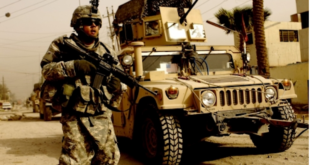MANAMA — Bahrain’s appointed upper chamber on Saturday approved a tough law to combat terrorism already passed by the elected parliament and which critics say “punishes suspects for their intentions.” The 40-member Majlis Shura, or consultative council, which is named by the king, approved the legislation almost unanimously within minutes, days after it was passed by the Gulf archipelago’s elected 40-strong parliament by a 30-10 vote.
The legislation, which must be ratified by King Hamad, provides for the death penalty, jail terms reaching life imprisonment, and house arrest for acts of terror or the establishment of terrorist groups.
It defines terrorism as “the use, or threat of use, of force or any other illegitimate means … to execute an individual or collective criminal venture with the aim of disturbing public order, endangering the kingdom’s security, or harming national unity or the security of the international community.” Acts considered offenses under existing penal codes or other laws also come under the label of terrorism “if they are perpetrated for a terrorist goal.” The list of offenses punishable under the new law includes the establishment of organisations with the purpose of “seeking to obstruct the constitution or laws, or prevent a state institution from performing its task, or … undermine national unity using terrorist means.” “Many of the provisions of this law are unconstitutional,” said MP Farid Ghazi, one of the lawmakers who voted against the legislation.
“A person must not be punished for intentions, but for deeds.
This law would punish [suspects] for their intentions, and this is unconstitutional,” he told AFP.
The new law comes despite the fact that the constitutional court last month revoked a provision in the penal code in force since 1977 which provides for punishments on the basis of a suspect’s intentions, Ghazi said.
Mohammad Sheikh, a Shiite Islamist member of parliament, also decried the legislation for “giving authorities wide powers to detain any citizen and level charges on the basis of suspicion.” Punishment cannot be meted out on the basis of intentions, but should be administered only if there is an actual crime, he said.
But the assistant undersecretary for legal affairs at the interior ministry, Colonel Mohammad Bu Hmud, dismissed such concerns, saying the law would not punish people over their intentions.
“Intentions must be coupled with deeds” if anyone is to be penalised, he told AFP.
Bu Hmud denied that Bahrainis who declare their intention to assist Lebanese or Palestinian resistance groups would be labelled “terrorists.” “Our laws in Bahrain do not consider the Palestinian or Lebanese resistance to be terrorist groups,” he said.
Police in Bahrain, a close US ally and home to the US Navy’s Fifth Fleet, used tear gas Friday to disperse demonstrators intent on protesting outside the US embassy against Israel’s military offensive in Lebanon.
King Hamad had on Thursday ratified a controversial law on public assembly that restricts the right to meet and lays down prison terms for unauthorised protests.
 Eurasia Press & News
Eurasia Press & News



